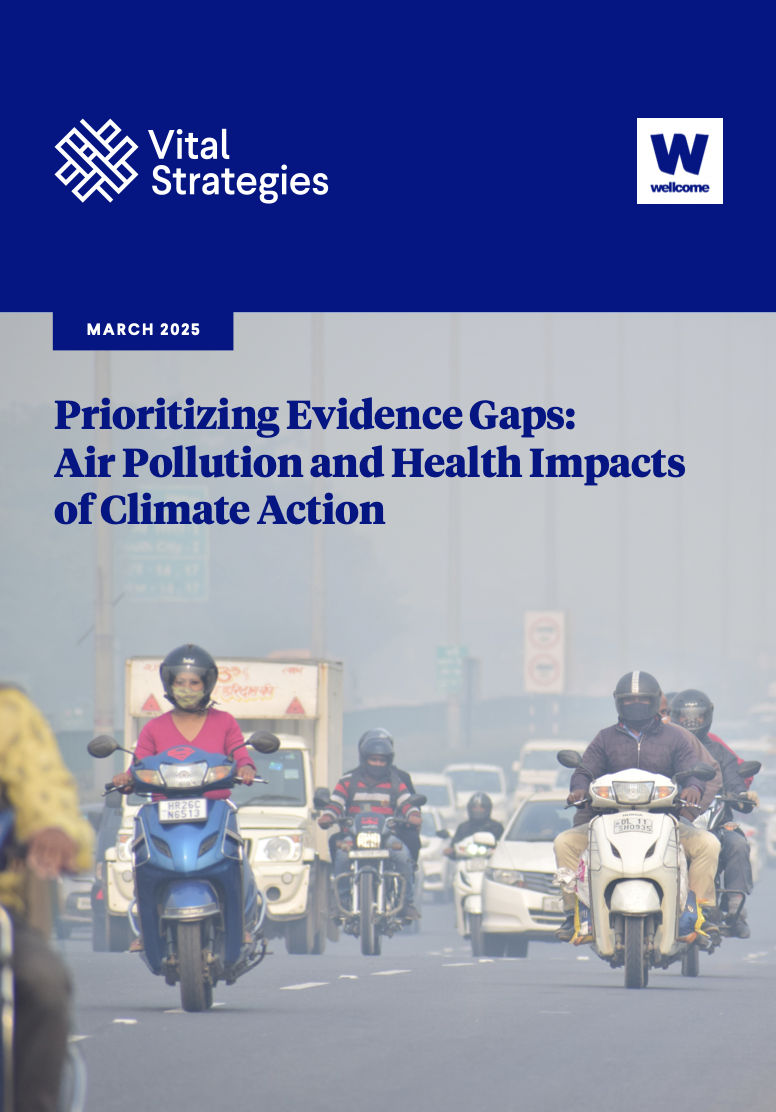Globally, around 8 million deaths are associated with air pollution each year. The vast majority of these deaths are caused by anthropogenic sources of combustion, including energy production, power generation, transport, waste burning, industry and biomass burning (for household energy and agriculture). These activities result in a complex mixture of health- and climate-damaging pollutants with warming and cooling effects, including particulate matter, ground-level ozone, carbon dioxide, nitrogen dioxides and sulfur dioxides. Climate action to address these leading global sources of pollution in a way that results in net-cooling would offer short-term benefits to health while providing longer-term benefits to the planet.
We conducted a rapid scoping activity to identify and prioritize gaps in the evidence base that may be limiting cities’ and countries’ abilities to demonstrate the health impacts of climate mitigation actions targeting combustion source air pollution.
Read the report here.
Recent Abstracts
Raising Alcohol Taxes to Reduce Harm: Fact Sheets for Brazil
How the Alcohol Industry Steers Governments Away From Effective Strategies to Curb Drink…
Analysis of the Efficacy of Alcohol Industry-Sponsored Drink-Driving Campaigns
Messaging Recommendations for Effective Road Safety Campaigns: Lessons From Formative Research for Drink…
Testimonials: Personal stories that have the power to save lives on the road
Knowledge, Attitudes, and Practice Study on Lead Poisoning and Pollution in Indonesia
Improving Civil Registration and Vital Statistics Systems in French-Speaking Countries: Opportunities and Challenges
Strengthening the Civil Registration and Vital Statistics (CRVS) System in Colombia
Estimation of the direct and indirect costs attributable to alcohol consumption in Brazil
Guidance for Collection and Processing of Cause-of-Death Data in the Civil Registration and…
